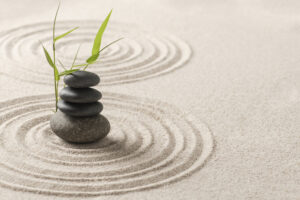

Holistic Health And Performance with Andy Tsz Chui Chan
Everything is interconnected, and diet doesn't matter if we aren’t taking care of our mental and physical health. You can’t talk about mental wellness without mentioning the need for movement or diet wellness without mentioning the impact of stress on the digestive system.
Table of Contents
My guest today is Andy Tsz Chiu Chan. Andy is a Certified Strength and Conditioning Specialist, educator, and presenter from Hong Kong. He holds a Master’s degree in exercise science from Concordia University Chicago. Andy has a genuine passion for making a positive impact in the fitness industry through learning and sharing different unique methodologies. Drawing on his master’s degree in exercise science and influenced by his 10-year stay in the United States. Andy has a unique outlook on health and athletic performance. You’ll find hints of traditional Chinese medicine integrated into his training philosophy, where harmony between all aspects of life is a prerequisite to optimal health, performance, and wellbeing. Let’s see how he Gets up, Dresses up, and Shows up!
Andy’s Journey and How He Got into Chinese Medicine and Fitness Space
At 2:04, we start with Andy sharing his journey and how he got involved in Chinese medicine and the fitness space. According to Andy, we live in a day and age where information abundance seems closer to the point of drowning. Search online for ways to become faster, healthier, stronger, and happier, and you will be bombarded with so much information. Andy’s job as a strength and conditioning coach, educator, presenter, and now an author is to help others deconstruct all this information so that no one has to waste time doing things that hinder their athletic performance. In addition to personal training, Andy also does coaches’ training with National Academy sports lessons and in his workshops, where they work on various aspects of training.
How To Know If a Coach Is Qualified and Can Be Trusted
There are so many coaches out there, and everyone is tagging behind a fancy title. So how do you know if a coach is qualified and can be trusted? Andy shares that the principles are the same for all coaches. First, start by looking at the qualifications. We often think that qualification doesn’t matter because of the big gap between implementing what we learn in school versus real life. However, Andy argues that if a coach has the qualifications, this is proof they can put more effort into knowing the actual knowledge behind what everybody is doing. Second, you need to know if the coach is a good listener. Not many of us are taught to be active listeners. So, when you stumble on someone who can listen to you without thinking about their next client, lunch, or day, this makes them relatable and trustworthy. To learn more, tune in at 03:42
Andy's Training Philosophy and His Focus on Movement
At 06:09, Andy shares his training philosophy and what it aims to achieve. They do a lot of move and balance training, and instead of focusing on isolated muscle training, they focus on movement patterns. Their polarity of working out is to develop a skill inside the gym that their trainees can transfer to life outside the gym. So, if you can move better inside the gym, you can definitely move better outside the gym. However, if we are just training on the machines, you can have the best-looking quad or pec, but it will not make you pick up your groceries or get things to the car easier. In the move and balance training approach, Andy trains people better coordination and balance so that they can move better and perform better in the field.
Traditional Chinese and How Andy Integrates It into Fitness

Andy shares that in 2016, in Olympics, Michael Phelps had Cupping signs on his back that made people crazy over this Acupuncture technique. Andy grew up in Hong Kong with the technique, and when he was doing his masters, it was one of his projects. Andy wanted to find out the efficacy of cupping. He did his research and found two perspectives: the western style and the traditional Chinese medicine (TCM) style. However, in the US, Chinese medicine was presented as weird and mysterious, and no one could have explained to him the tangible benefits of TCM. Inspired by his entrepreneurial spirit, Andy collaborated with Chinese medicine practitioners to unpack it in a language that people could understand without coming out as weird. He spent some years learning and found that TCM is based on the simple premise that good health relies on harmony between different aspects of life. Since then, Andy has been using this holistic approach in his training and looks at diet, emotions, and training.
Individualistic Versus Collective Culture and How It Affects How We Train
At 10:31, Andy explains that in the US, you have to be engaging to deliver a good speech, while in Asia, you get the attention because you are the leader. Also, in the western medical system, specialists specialize in different areas of the body, which is great because they become experts. However, they often miss out on the important point that everything is interconnected. When things go wrong, multiple things may be happening, and treating one organ might not help resolve the problem. According to Andy, everything is interconnected, and you can’t talk about mental wellness without mentioning the need to move regularly or diet without mentioning the impact of stress on the digestive system. Moving to the holistic approach and looking at the whole picture is the best way to tap into the whole person.
Incorporating Diet into Your Mental Clarity and Wellbeing
Andy stresses that diet doesn’t matter if we don’t take care of our mental health. If we are depressed all the time, we lack the motivation to look out for ourselves, which often results in poor lifestyle habits. Andy recommends 40% emotions, 40% diet, and 20% movement ratios for optimal health, performance, and wellbeing. Incorporating these ratios into your lifestyle requires a change in mindset and making a decision to make it a habit and keep it. To hear more, tune in at 13:42
How 1% Change Can Make a Difference in The Long Run

For more clarity on change, Andy references ‘Atomic Habits’ and The Aggregation of Marginal Gains.” One percent change every day can lead to multiple significant in the long run. According to Andy, that holds true in human life because everything in our body plays a role. If everything is in isolation, then 1% everywhere doesn’t make any difference, but the fact that everything is interconnected, 1% everywhere will accumulate to something significant and remarkable. With that in mind, we know that one decision to consume junk food can impact and hinder our progress, and scrolling on our 10 phones before going to sleep can impact our sleep and lead to a not-so-ideal day after. It’s all about the small decisions we make in life, and they make a big difference in the long run. To learn more about change, go to 14:47
Andy’s Morning Routine; How He Gets Up, Dresses Up, And Shows Up.
At 16:27, Andy shares that he has a 17 months old baby. Previously he had a lot of control over his morning routine, but with the kid in mind, he has a human alarm clock. His morning routine consists of three important things. First, he has to get a glass of water as soon as he wakes up. After 8 hours of fasting, we get dehydrated, and from a movement point of view, this can impact our ability to move because our muscles and sub-tissues mainly consist of fluids. This is the last thing that Andy wants as a trainer. Second, he does breath practice for as long as he can to calm his mind down before moving his attention turns his son. Lastly, Andy shares that he often has real food in the morning to kick the day with real foods instead of processed food.
How to Build and Grow your Mental Muscle
So many of us can’t stay still or quiet to meditate, but at 20:40, Andy expounds on behavior change and how you can start building your mental muscle. The first thing you should do is see the importance and the agency to the why you should do it. We are living in an age where there are so many stimuli. We’re always rushing, talking, having so much coffee, and often in upstate. We’re encouraged to show up, be great, and be energetic, but we must recognize that there are times when we have to go down. You don’t need to be a hyper person in order to do well; it’s okay to back down a little bit to allow your body to recover. When you recover, you can be hyper when you need it, but being hyper all the time is exhausting and unsustainable. Remember, it’s okay to slow down and recharge; we enjoy it more when we take time to take care of our mental muscles.
YOUTUBE KEY NUGGETS
[00:45] A bit about our guest today, Andy Tsz Chiu Chan
[02:04] Andy’s journey and how he got into Chinese medicine and fitness space
[03:42] How to know if a coach is qualified and can be trusted
[06:09] Andy’s training philosophy and his focus on movement
[07:35] Traditional Chinese and how Andy integrates it into fitness
[10:31] Individualistic versus collective culture and how it affects how we train
[13:42] Incorporating diet into your mental clarity and wellbeing
[14:47] How 1% change can make a difference in the long run
[16:27] Andy’s morning routine, how he Gets up, Dresses up, and Shows up
[20:40] How to build and grow your mental muscle
Connect With Andy Tsz Chiu Chan
Check Out Some Of Our Latest Blogs


Habit Stacking: Develop The Habit Of Tackling Your Major Task First Thing Each Morning

Here’s Why You Should Make Your Bed First Thing In The Morning.

High-Performance Habit Rewiring

Hitting The Snooze Button Makes Your Body Even More Tired

